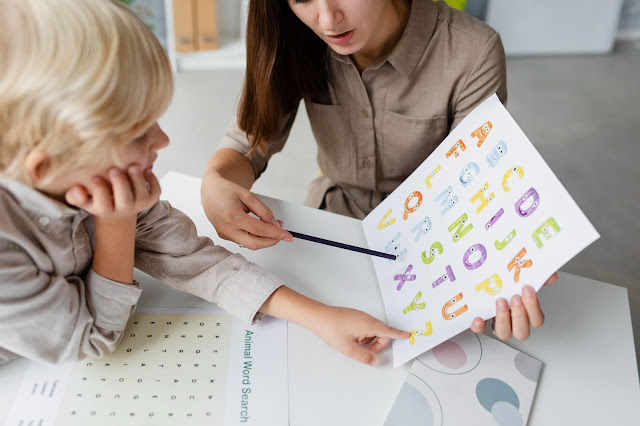Good Habits for Kids: Building a Strong Foundation for Life
Developing good habits for kids from an early age plays a crucial role in shaping their future. Positive habits foster discipline, responsibility, and emotional well-being, helping children grow into confident individuals. At K.R. Mangalam World School, we believe that instilling these habits early leads to lifelong success. From daily routines to social behaviours, good habits set the foundation for a child's academic and personal growth.
Importance of Daily Routines
A structured daily routine helps children stay organised and develop self-discipline. Establishing simple habits can make a big difference:
Consistent Sleep Schedule – A good night's sleep improves concentration, memory, and overall health.
Healthy Eating Habits – A nutritious diet fuels the body and mind, supporting growth and learning.
Time Management – Setting a fixed time for homework, play, and family interactions teaches responsibility.
At K.R. Mangalam World School, we encourage students to balance academics and extracurricular activities effectively, helping them develop a structured routine.
Developing Positive Social Skills
Strong social skills enable children to build healthy relationships and communicate effectively. Encourage:
Respect and Kindness – Teaching children to be polite, empathetic, and understanding towards others.
Active Listening – Paying attention and responding thoughtfully improves communication skills.
Sharing and Teamwork – Collaborative activities help children learn cooperation and problem-solving.
Good social habits allow children to thrive in school and beyond, fostering a positive environment for learning and personal growth.
Encouraging a Love for Learning
Children who develop a love for learning from an early age are more likely to succeed academically. To nurture this habit:
Read Daily – Reading improves vocabulary, creativity, and critical thinking.
Curiosity and Exploration – Encouraging questions and hands-on learning enhances problem-solving skills.
Consistent Study Habits – Setting a fixed time for revision helps retain information effectively.
Schools like K.R. Mangalam World School Admission integrate engaging teaching methods to inspire curiosity and a lifelong passion for learning.
Teaching Responsibility and Independence
Helping children develop responsibility and independence prepares them for real-world challenges. Focus on:
Completing Chores – Simple tasks like making the bed or organising school supplies build discipline.
Decision-Making Skills – Encouraging children to make choices helps develop confidence.
Financial Awareness – Teaching basic money management, like saving pocket money, fosters financial responsibility.
Building these habits empowers children to become responsible and self-sufficient individuals.
Conclusion
Instilling good habits for kids at an early age lays the foundation for a successful and fulfilling future. Schools like K.R. Mangalam World School play a vital role in reinforcing these habits through structured learning and values-based education. Parents and educators must work together to guide children towards positive routines, social skills, and lifelong learning. By fostering good habits today, we ensure a brighter tomorrow for the next generation.
Read more - Essay On Global Warming In English With Samples
FAQs
Why are good habits important for kids?
Good habits help children develop discipline, responsibility, and essential life skills, shaping them into well-rounded individuals.
How can I encourage my child to follow a daily routine?
Set a consistent schedule, use visual reminders, and make routines fun to encourage children to stick to good habits.
What are some easy ways to teach responsibility to kids?
Start with small tasks like tidying up toys, setting the table, or organising their school bag to build a sense of responsibility.
How can schools support children in developing good habits?
Schools like K.R. Mangalam World School integrate structured learning, interactive activities, and value-based education to instil lifelong positive habits in students.




Comments
Post a Comment